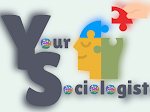Self-awareness can be defined as the ability to recognize and understand one's own thoughts, feelings, and behavior. In this article, we will delve into what self-awareness is, why it is important, how to develop it, the benefits of developing self-awareness, and how it relates to social-emotional learning.
What is Self-Awareness?
Self-awareness is the foundation of emotional intelligence. It is the ability to monitor and understand one's own emotions, thoughts, and behaviors. It is about being conscious of your strengths and weaknesses, your values and beliefs, and how you interact with others. Being self-aware allows you to have a deeper understanding of yourself, which in turn helps you to make better decisions and to be more effective in your personal and professional life.
Why is Self-Awareness Important?
Self-awareness is a crucial skill for personal growth and development. When you are self-aware, you are better able to understand your own emotions and behaviors, and how they impact others. This understanding enables you to manage your emotions and behavior in a positive way, and to communicate more effectively with others.
In addition, self-awareness allows you to recognize your own biases and assumptions, which can help you to become more open-minded and receptive to new ideas and perspectives. This can be especially important in a diverse and multicultural society where it is essential to be able to understand and appreciate different viewpoints and cultures.
How to Develop Self-Awareness?
Developing self-awareness is a lifelong process that requires introspection and reflection. Here are some practical ways to develop self-awareness:
- Mindfulness Meditation: Practicing mindfulness meditation can help you to become more aware of your thoughts and emotions. It involves sitting quietly and focusing on your breath, observing your thoughts without judgment, and bringing your attention back to your breath when your mind starts to wander.
- Journaling: Writing in a journal can help you to clarify your thoughts and feelings. It allows you to reflect on your experiences and to identify patterns in your behavior and emotions.
- Seek Feedback: Asking for feedback from others can be an effective way to gain insight into your strengths and weaknesses. Be open to constructive criticism, and use it as an opportunity to learn and grow.
- Practice Self-Reflection: Take time to reflect on your experiences and actions. Ask yourself questions such as "What did I do well?" and "What could I have done differently?"
The Benefits of Developing Self-Awareness
Developing self-awareness can have many benefits, including:
- Improved Self-Regulation: When you are self-aware, you are better able to regulate your emotions and behavior, which can lead to improved relationships and better decision-making.
- Increased Empathy: Self-awareness can help you to be more empathetic and understanding of others, which can lead to more harmonious relationships.
- Better Communication: When you are self-aware, you are better able to communicate your thoughts and feelings in a clear and concise manner, which can lead to more effective communication.
- Improved Self-Esteem: Self-awareness can help you to recognize your strengths and weaknesses, which can lead to improved self-esteem and self-confidence.
How Self-Awareness Relates to Social-Emotional Learning
Social-emotional learning (SEL) is the process through which individuals acquire and apply the knowledge, attitudes, and skills necessary to understand and manage emotions, set and achieve positive goals, feel and show empathy for others, establish and maintain positive relationships, and make responsible decisions.
Self-awareness is one of the five core competencies of SEL, alongside self-management, social awareness, relationship skills, and responsible decision-making. Self-awareness is the foundation of SEL, as it enables individuals to identify and understand their own emotions, thoughts, and behaviors. This awareness is essential for self-management, social awareness, and relationship skills, as it allows individuals to regulate their emotions, empathize with others, and communicate effectively.
Furthermore, developing self-awareness can help individuals to make responsible decisions, as they are better able to understand how their choices impact themselves and others. This is particularly important in a social context, where responsible decision-making can have a significant impact on the wider community.
In conclusion, self-awareness is a critical skill for personal growth, development, and social-emotional learning. By developing self-awareness, individuals can gain a deeper understanding of themselves and their interactions with others, leading to improved relationships, communication, and decision-making. As a society, we can benefit greatly from promoting and fostering self-awareness, as it is the foundation of emotional intelligence and responsible citizenship.







0 Comments